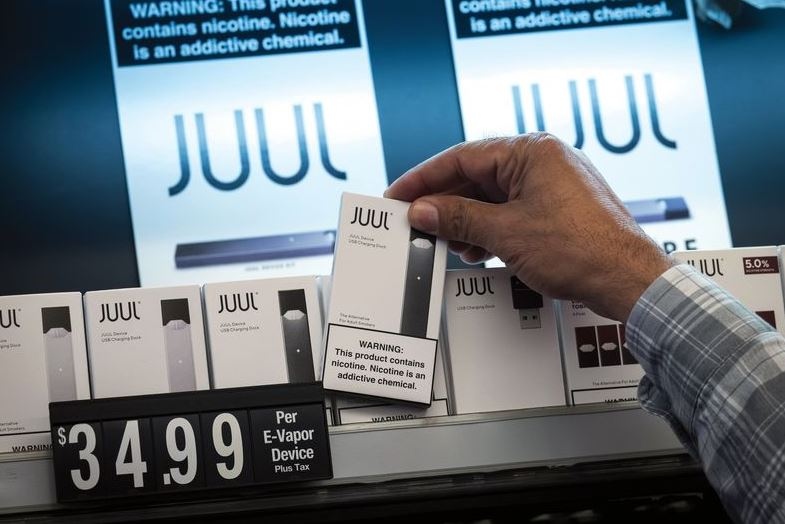The company Juul Labs announced on Tuesday that it had agreed to settle approximately 5,000 lawsuits in a Northern California court case for an undisclosed sum, resolving one more legal battle over its sale and marketing of e-cigarettes that have been blamed for the widespread use of electronic cigarettes among adolescents.
The corporation said that it has obtained an investment to support the planned agreement on the multidistrict litigation, which would bring an end to personal injury, consumer class action, government and Native American tribal claims.
A spokesman for the company said in a statement that “these settlements represent a major step toward strengthening Juul Labs’ operations and securing the company’s path forward to fulfil its mission to transition adult smokers away from combustible cigarettes while combating underage use.” These settlements represent a major step toward strengthening Juul Labs’ operations and securing the company’s path forward to fulfil its mission to transition adult smokers away from combustible cigarettes.
In September, the business reached a settlement with an investigation that was being conducted by thirty states for a total of $438.5 million. This investigation focused on the early marketing efforts of the company’s products, such as the use of young models and the sale of flavours like mango and crème brûlée, which many individuals believed were marketed specifically toward children and teenagers despite the fact that they were sold to adults. This settlement established the rules for Juul’s marketing, one of which stated that the business was forbidden from targeting adolescents and young adults.
Juul has denied on many occasions that it targeted young people, and the firm has not acknowledged any wrongdoing in any of the previous rounds of settlements where it has reached deals with the plaintiffs. According to the attorneys for the plaintiffs, the most recent deal does not put a stop to the claims that might be made against Altria, which possessed a share of 35% in Juul. The agreement will initiate a claims procedure; however, it does not instantly give any monetary compensation.
Sarah R. London, one of the co-lead counsels representing the plaintiffs, was quoted as saying in a statement that “the breadth of these actions is tremendous.” “These agreements will put genuine compensation in the hands of victims and their families, provide real funding to schools for abatement programmes, and assist government and tribal organisations prevent child use of e-cigarettes throughout the United States,” according to the statement.
The Food and Drug Administration has not yet rendered a decision about the permanent authorization of the business’s vaping devices and pods for retail sale while the company waits. The application submitted by the firm in June to have the authority to continue selling its electronic cigarettes was rejected by the agency in June. A provisional judicial respite was granted to Juul, and the Food and Drug Administration (FDA) subsequently placed its decision on hold for additional study, which is still ongoing.
According to Juul, about 10,000 plaintiffs were engaged in the settlement that was reached on Tuesday. Many of these plaintiffs claimed that they were unaware that the product may be more addictive than cigarettes. The plaintiffs, who included individual school districts, also asserted that the attraction of e-cigarettes to young people was another reason why the products should be considered excessively hazardous. They accused the defendants of a broad variety of wrongdoings, ranging from racketeering and fraud to unjust enrichment.
Parents Against Vaping E-Cigarettes co-founder Meredith Berkman expressed her hope that the settlement would be significant enough “to recompense millions of American families whose lives have been upended by the teenage vaping pandemic generated by Juul.” In the ongoing multidistrict case, the organisation is not participating as a plaintiff.
She said that the paucity of facts originally supplied by Juul disturbed her, and she hoped that the court in charge of the action would order Juul to submit papers proving if the firm had intentionally targeted teens.

